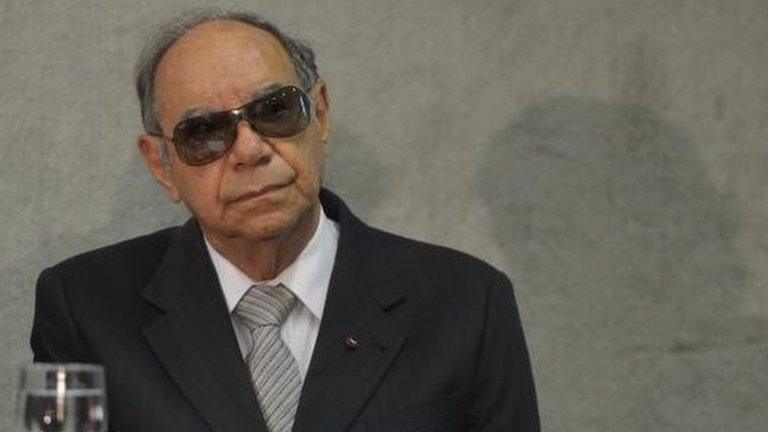Brazilian vote-pledge stirs memories of military rule
- Published
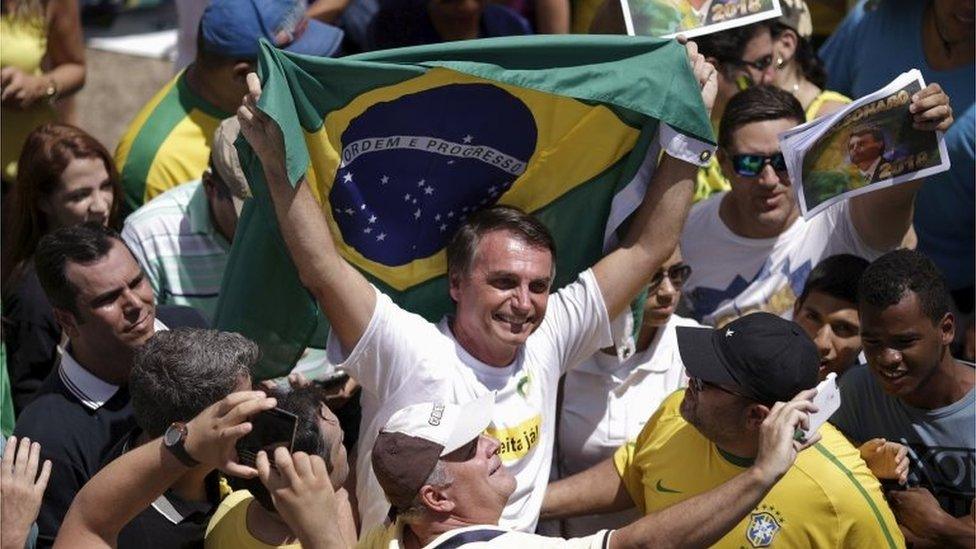
Jair Bolsonaro has courted controversy before with homophobic rhetoric
On Sunday, 511 lawmakers took turns in Brazil's lower house of Congress to vote on whether impeachment proceedings against President Dilma Rousseff should go ahead.
Among the often impassioned statements they gave, one touched a raw nerve in Brazil and highlighted divisions in the country's society.
It was made by Jair Bolsonaro, a right-wing MP from Rio de Janeiro state.
"You lost in 1964 and now in 2016," he said referring to the coup which led to 21-year-long military rule in Brazil.
Mr Bolsonaro, a former army captain then dedicated his vote to "the memory of Colonel Carlos Alberto Brilhante Ustra, the terror of Dilma Rousseff".
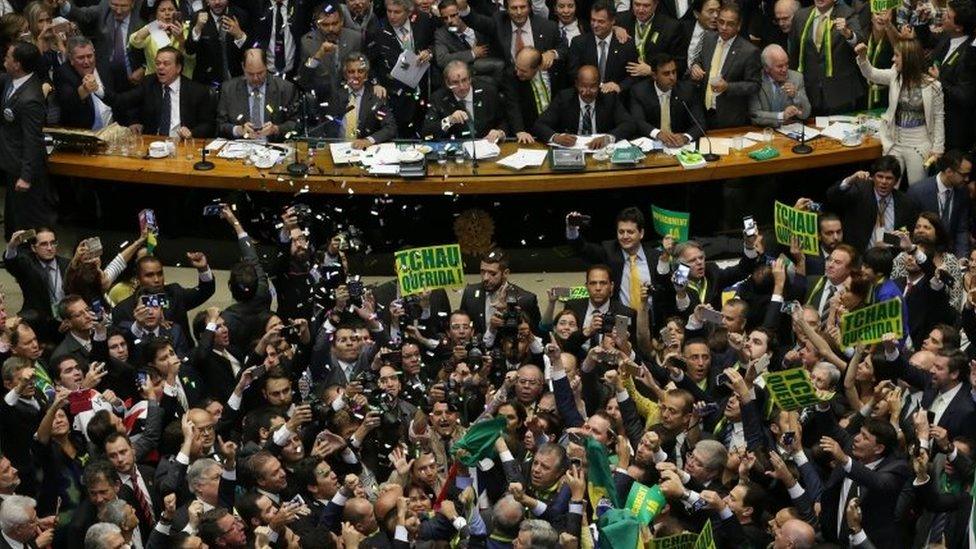
Brazilian MPs voted on Sunday on an impeachment motion against President Rousseff
Col Ustra, who died last October, was one of Brazil's most controversial figures from the decades of military rule.
As chief of Brazil's secret service (Doi-Codi) in Sao Paulo, he was accused of having been personally responsible for the disappearance and death of more than 60 political opponents.
Human rights activists say another 500 people were tortured at the agency's headquarters.
Col Ustra is the only member of the military to have been found guilty of torture.
Dark memories
For Gilberto Natalini, a doctor and a city councillor in Sao Paulo, the reference brought back dark memories.
Mr Natalini says he was tortured by Col Ustra when he was a 19-year-old medicine student in 1972.
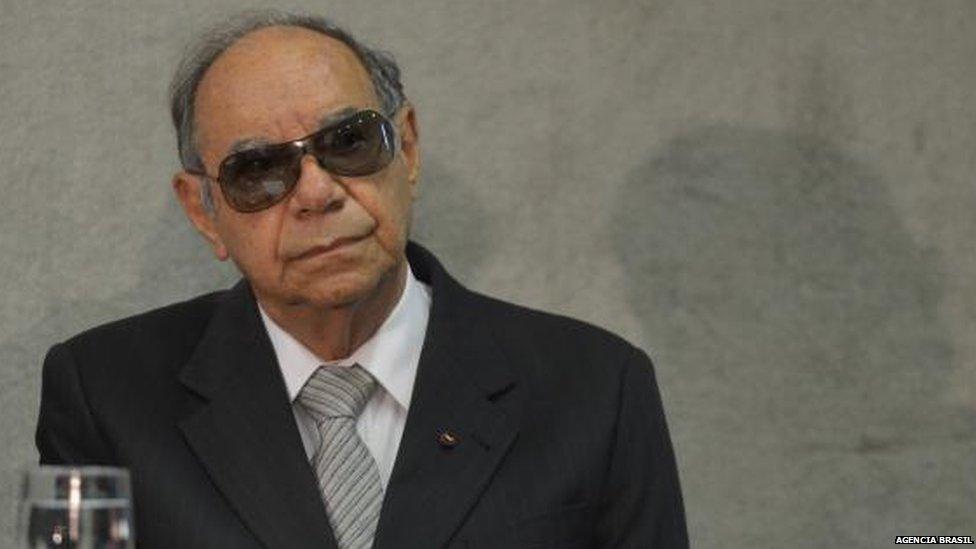
Col Ustra published two books with his account of events during military rule
"I was detained because they wanted me to give them information about the whereabouts of a friend of mine, who was fighting the military government", he told BBC Brasil.
"Ustra forced me to stand up naked on two cans, poured water with salt all over me, connected wires to my body and applied several electric shocks, while he beat me with a stick", Mr Natalini recalls.
Mr Natalini carries the physical and psychological scars of the two months he was held by the Doi-Codi.
He says he suffered hearing loss because of the torture but that he never revealed the information the military was after.
While President Rousseff, a former leftist guerrilla, was not tortured by Col Ustra himself, she has described being beaten, punched and given electric shocks during the three years she was held.
Asked for her reaction to Mr Bolsonaro's comment, she said: "I was indeed arrested in the 70s and I knew this man well that he [Mr Bolsonaro] refers to.
"Ustra was one of the biggest torturers in Brazil. He was not only charged for torture, but also for murder," the president said.
Divided reaction
On social media, reaction to Mr Bolsonaro's comment was divided.
The MP is hugely popular with his constituents. He got more votes than anyone else in the state at the last election.
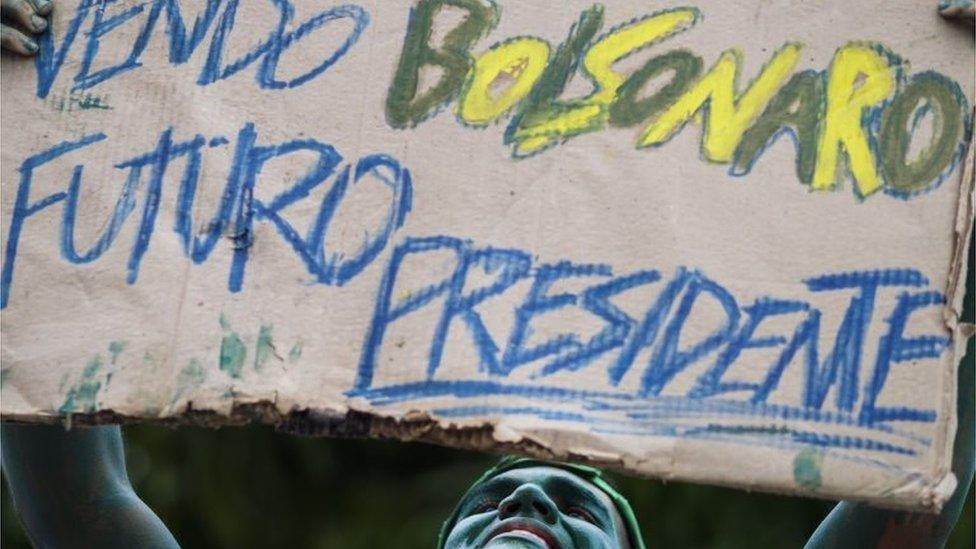
The remark seems to have increased Mr Bolsonaro's popularity with his supporters, who want him to run for president
But in a country where more than 400 people disappeared or were killed under military rule, many human rights organisations strongly condemned Mr Bolsonaro's remarks.
Human Rights Watch told BBC Brasil that his speech was "execrable and absolutely violent to the memory of the many that died for the concept of democracy that he attacks".
Amnesty International described it as "shocking".
The Brazilian Bar Association released a statement saying it would ask Brazil's Supreme Court to remove Mr Bolsonaro from his post as MP because of the comments he made.
Analysts say Mr Bolsonaro's controversial remarks were a calculated attempt to attract attention as he eyes running in the 2018 presidential elections.
And his gamble seems to have paid off with the number of likes on his Facebook, external surging to 2.9 million, ahead of President Rousseff with 2.8 million.
Meanwhile, likes of a Facebook page dedicated to Col Ustra have increased by 3,300%.
- Published20 April 2016
- Published15 October 2015
